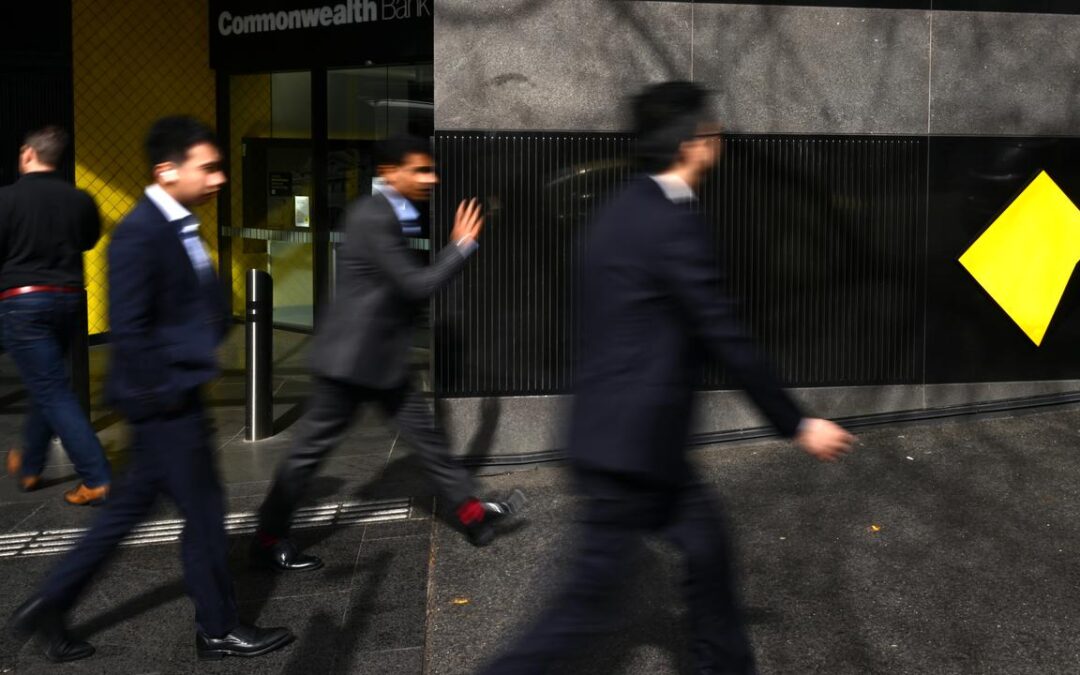
Australia’s biggest lender posts huge $10b year profit
Interest rate and tax cuts, combined with lower inflation, have given households more money to spend, a major bank says, after posting a huge annual profit on the back of better economic conditions.
Commonwealth Bank of Australia on Wednesday announced a $10.3 billion cash profit for 2024/25, up four per cent on the previous financial year.
Its bottom line result was broadly in line, at $10.1 billion to reflect an eight per cent improvement.
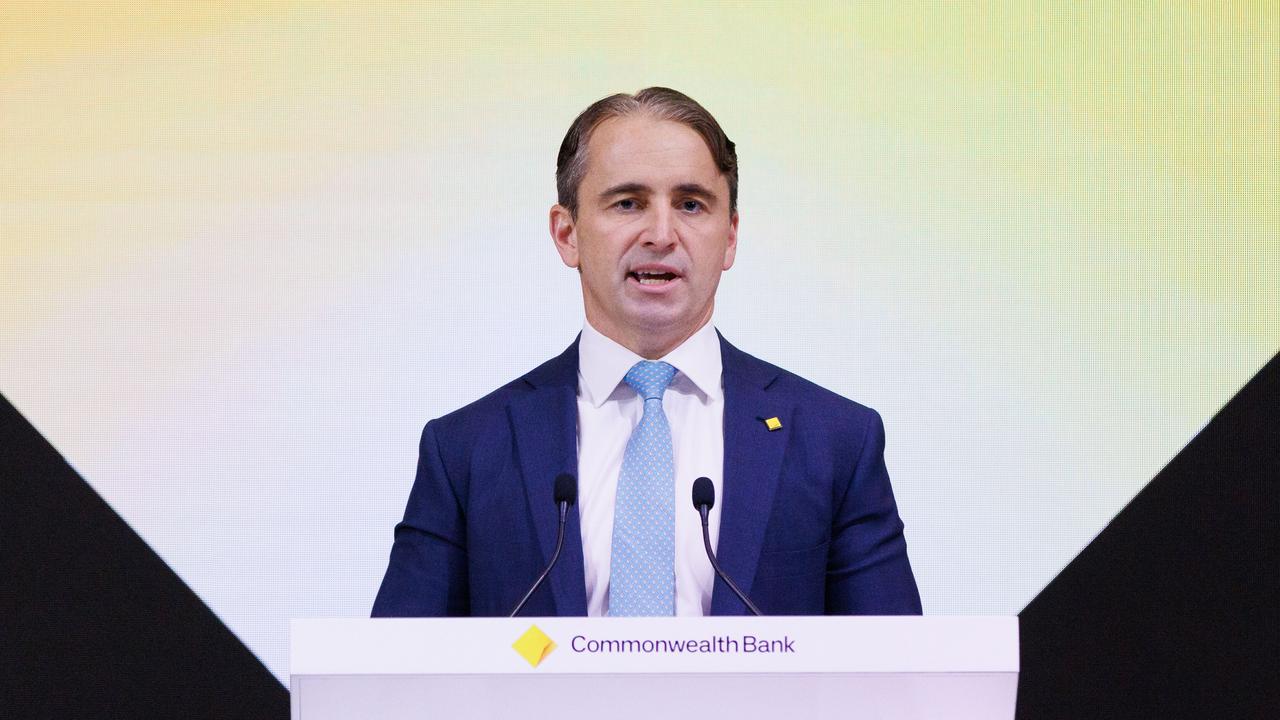
The boosted profit was driven by lending volume growth, a stable underlying net interest margin and lower loan impairment, offset by higher operating expenses.
CBA will pay a $2.60 final dividend, taking its total payout for the year to $4.85 per share, up four per cent from a year ago.
CEO Matt Comyn said the bank maintained a “prudent balance sheet”, which helped it withstand uncertainty and volatility over the year.
“The operating context has been characterised by a rise in global macroeconomic uncertainty, increased geopolitical risk and continued domestic competitive intensity,” he said in a statement.
The bank’s operating expenses weighed in at $12.9 billion in the year to June 30, for a rise of six per cent.
Higher operating costs were driven by inflation, a $900 million technology investment to handle the rise in scam and fraud activity, and more frontline lenders.
But economic conditions are improving with cost-of-living pressures easing, Mr Comyn said.
“Many households have seen a rise in disposable incomes due to the recent relief from reduced interest rates, lower inflation and tax cuts,” he added.
The bank still provided 139,000 tailored payment arrangements to help customers manage their mortgages and consumer finance repayments.
Mr Comyn said the year ahead should see modest economic growth with the bank maintaining “conservative financial settings” to survive any potential global impacts.
“Despite global uncertainty, the Australian economy has remained resilient, with strong fundamentals including a healthy labour market, steady immigration and ongoing public sector investment,” he said.
“We will play our part to help the nation prosper by lending to productive parts of the economy, advocating for national policy settings that help build a brighter future for all Australians.”
CBA shares ended at $178.80 at the close of trading on Tuesday.
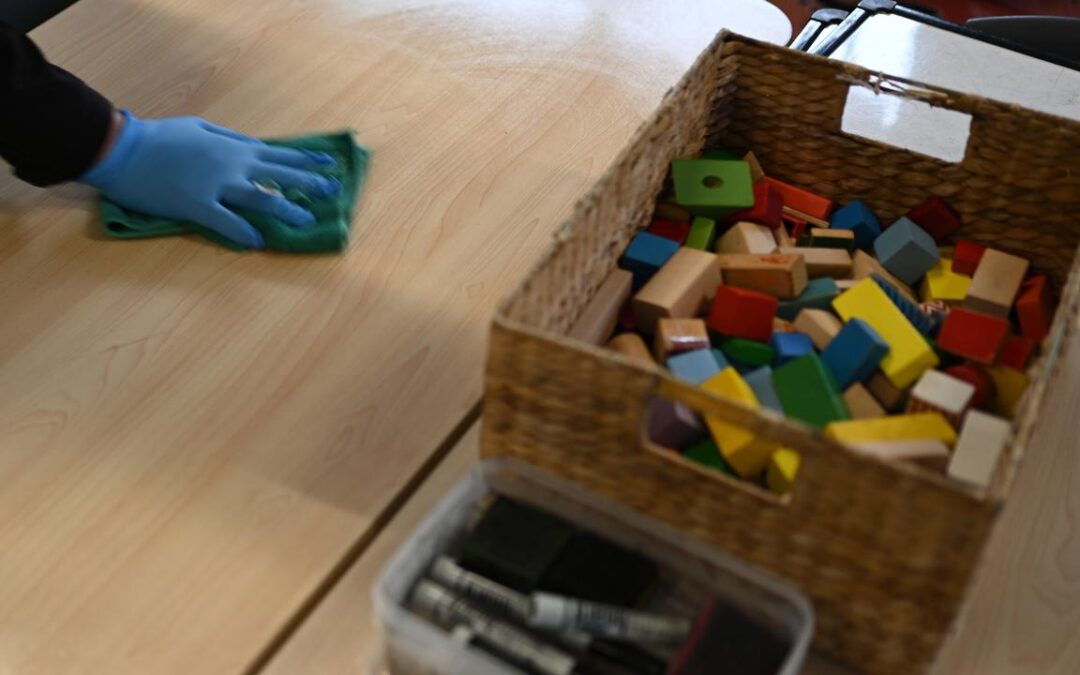
Childcare giant laments impact of abuse allegations
A childcare operator that employed a Melbourne man charged with 70 child abuse offences says negative media coverage is hurting its workers, as the future of subsidies comes into sharp view.
G8 Education, operator of a centre where Joshua Dale Brown allegedly abused children in his care, says the rest of its staff are struggling emotionally while working through the fallout of the abuse revelations.
Brown is accused of abusing eight children aged under two at a Point Cook centre in Melbourne’s southwest between April 2022 and January 2023.
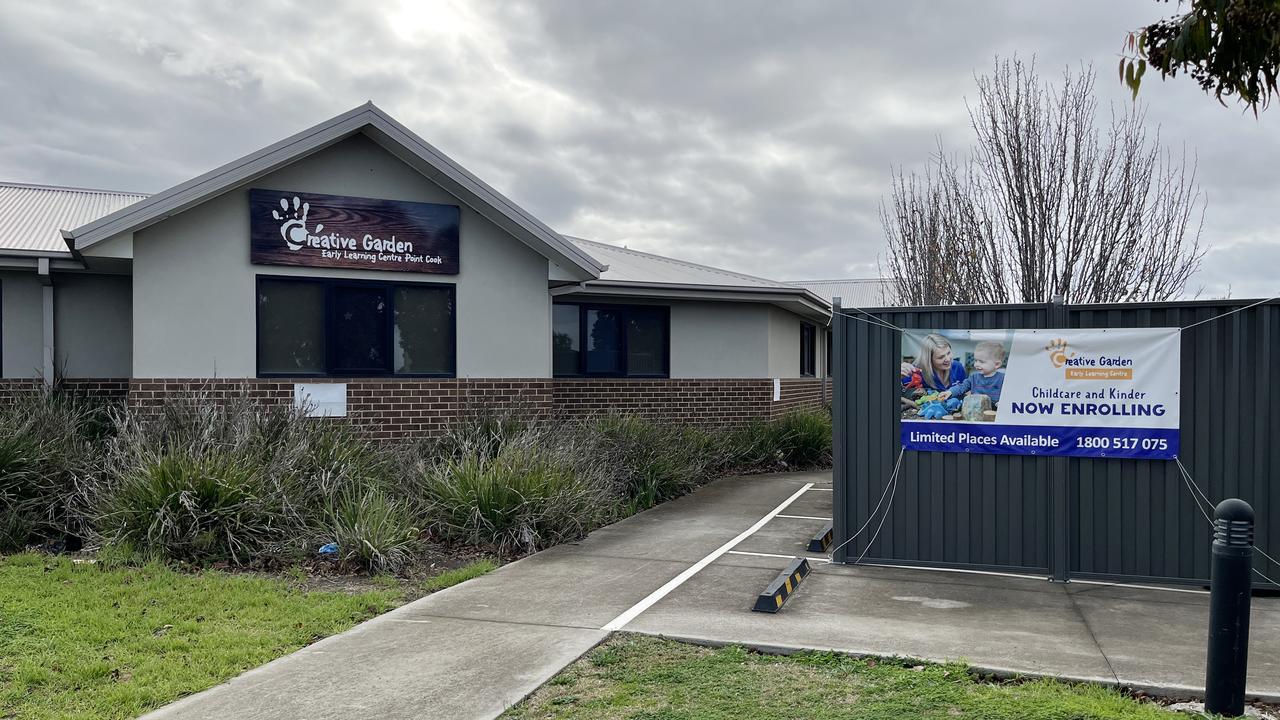
The company, which educates one in 40 Australian kids in childcare, made the submission to a NSW parliamentary inquiry into early childhood education and care starting on Wednesday.
“Whilst the recent negative media coverage has brought into light some terrible issues … it risks undermining the safety and wellbeing of the broader workforce,” G8 chief executive Pejman Okhovat said in the submission.
Early childhood workers already suffer from low societal recognition and pay which affects the ability of centres to attract and retain high-quality staff, G8 said.
Increasing staff pay and making training more affordable are common themes among more than 150 submissions to the inquiry.
But several slam the system’s perverse incentives that triggered a surge in profit-driven providers and a lack of focus on the best interests of the 1.3 million Australian children in childcare.
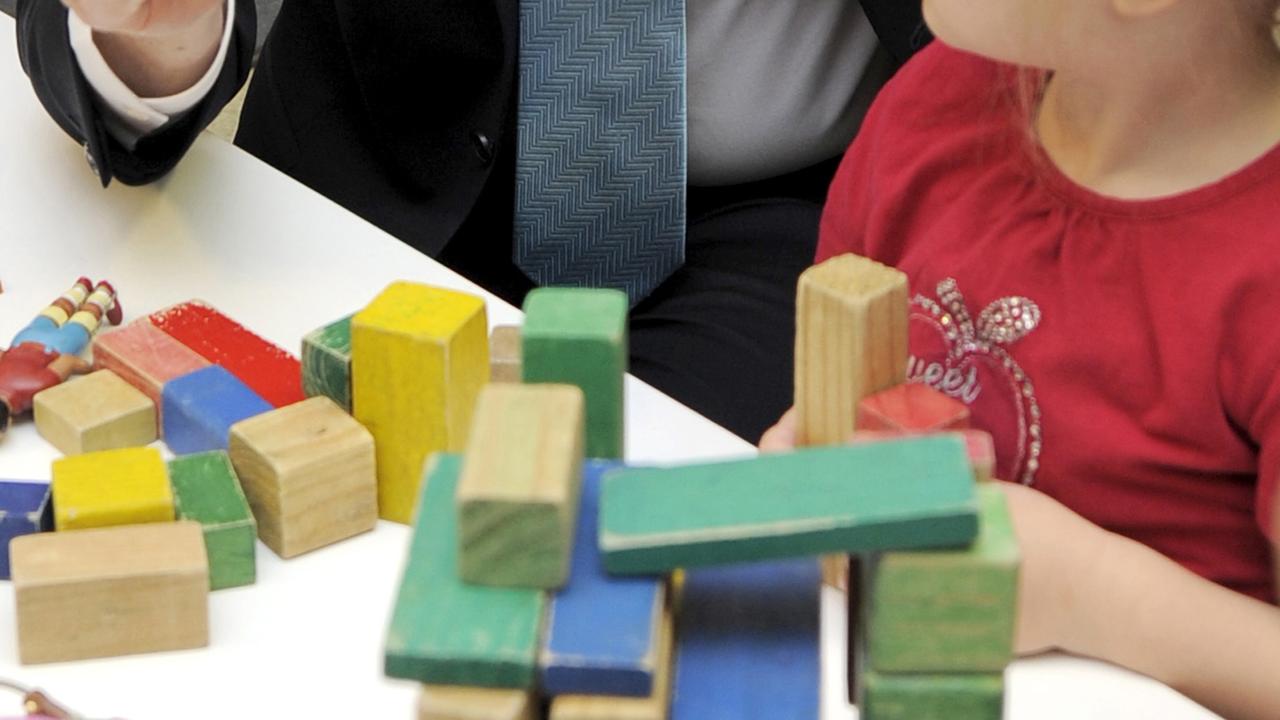
Parents and governments paying for services need a far better understanding of the operations of childcare providers, academics Gabrielle Meagher and Marianne Fenech argue.
“Too often, misplaced consideration of ‘commercial confidentiality’ is prioritised over children’s rights and safety,” they say.
“There is no requirement for the rights and best interests of children to be the paramount consideration in decision making by providers.”
The for-profit childcare sector has grown 30 per cent since 2015 while not-for-profits declined eight per cent, Community Early Learning Australia says.
“The over-reliance on for-profit services to meet demand for education and care services has failed to ensure access for all families,” the early childhood body said.
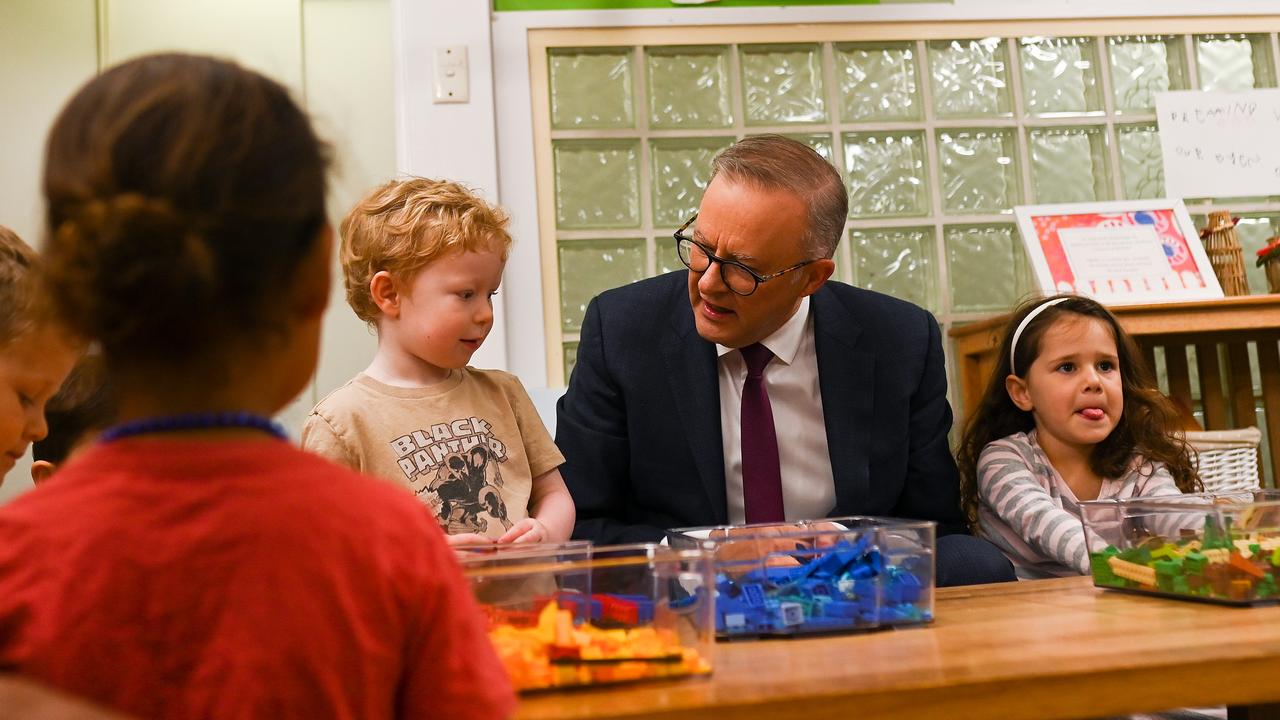
One educator who made a submission to the inquiry said the for-profit system often results in lower staffing levels and less care for children.
“After having experienced working for a not-for-profit service, I will never return to the dire conditions that permeates the for-profit part of the sector,” the anonymous submission reads.
The state inquiry comes as the federal government enlists consulting giant Deloitte to design a universal childcare scheme for the nation.
Deloitte will spend two years assessing whether a flat fee of $10 a day could replace the current Child Care Subsidy.
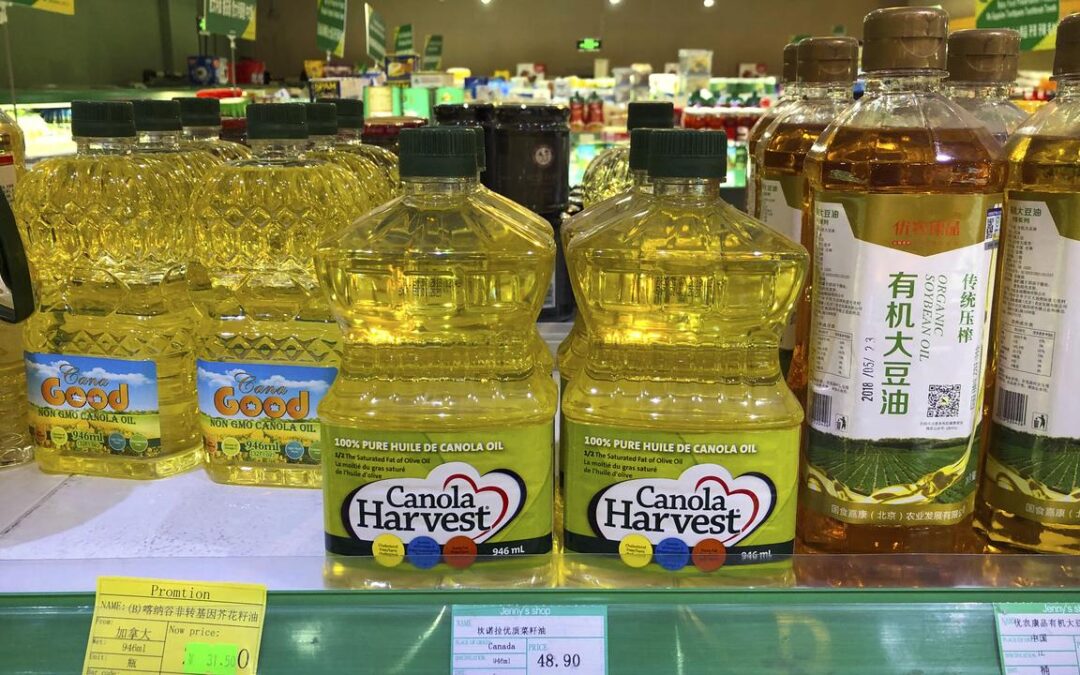
China duties on Canadian canola may advantage Australia
China has announced preliminary anti-dumping duties on Canadian canola imports in a new escalation in the year-long trade dispute that began with Canada’s imposition of tariffs on Chinese electric vehicle imports last August.
The provisional rate will be set at 75.8 per cent, effective from Thursday, the Ministry of Commerce said in a statement.
Canola Council of Canada president Chris Davison said that rate makes the Chinese market effectively closed for Canadian canola, to which Canada exported about C$5 billion ($A5.60 billion) of the oilseed crop in 2024.
ICE November canola futures fell as much as 6.5 per cent to a four-month low after the announcement.
“This really came as a surprise and a shock,” trader Tony Tryhuk of RBC Dominion Securities said.
China, the world’s largest importer of canola which is also known as rapeseed, sources nearly all its supplies of the product from Canada.
The steep duties would likely all but end imports if they are maintained.
“This is huge. Who will pay a 75 per cent deposit to bring Canadian canola to China? It is like telling Canada that we don’t need your canola, thank you very much,” one Singapore-based oilseed trader said.
China imposed tariffs on canola oil and meal in March.
Canada is now in a trade conflict with the world’s two largest economies, as it also faces tariffs on goods from the United States.
Canada’s number one canola market is the US, followed by China.
China’s Ministry of Commerce said an anti-dumping probe launched in September 2024 had found that Canada’s agricultural sector – particularly the canola industry – had benefited from substantial government subsidies and preferential policies.
The Canadian government and canola industry have previously rejected allegations of dumping.
The industry believes China’s complaint is based on other ongoing trade and political disputes, Davison said.
A final ruling could result in a different rate, or overturn Tuesday’s decision.
The decision marks a shift from the conciliatory tone struck in June when China Premier Li Qiang said there were no deep-seated conflicts of interest between the countries during a phone call with Canadian Prime Minister Mark Carney.
“This move … will put additional pressure on Canada’s government to sort through trade frictions with China,” said Trivium China agriculture analyst Even Rogers Pay.
Canada’s trade, agriculture and prime minister’s office did not immediately respond to request for comment.
Canada has imposed tariffs on Chinese electric vehicles, steel and aluminium.
Separately, China also launched an anti-dumping investigation into Canadian pea starch and imposed provisional duties on imports of halogenated butyl rubber, according to ministry statements.
Replacing millions of tons of Canadian canola is likely to be difficult at short notice, analysts say.
China uses imported canola to make animal feed for its aquaculture sector, as well as for cooking oil.
The move provides an opportunity for Australia, which looks set to regain access to the Chinese market with test cargoes this year after a years-long freeze in the trade, Pay said.
Australia, the second-largest canola exporter, has been shut out of the Chinese market since 2020 due mainly to Chinese rules to stop the spread of fungal plant disease.
However, even if Australian imports increase, “fully replacing Canadian canola will be very difficult unless import demand drops sharply,” said Donatas Jankauskas, an analyst with commodity data firm CM Navigator.
Davison said his industry believes China will need Canada’s canola to meet the sort of demand it has experienced in recent years.
“I think the expectation would be that they could not meet those needs with a quality of a product and the volume that we provide,” Davison said.
Canadian farmers are about to begin harvesting canola and will not be happy to see prices plunge, Canadian Canola Growers Association president Rick White said.
As long as the prohibitive duty is there farmers face suppressed prices.
“It’s going to certainly have a damping effect on price for farmers and they’re going to be stuck with that,” White said.
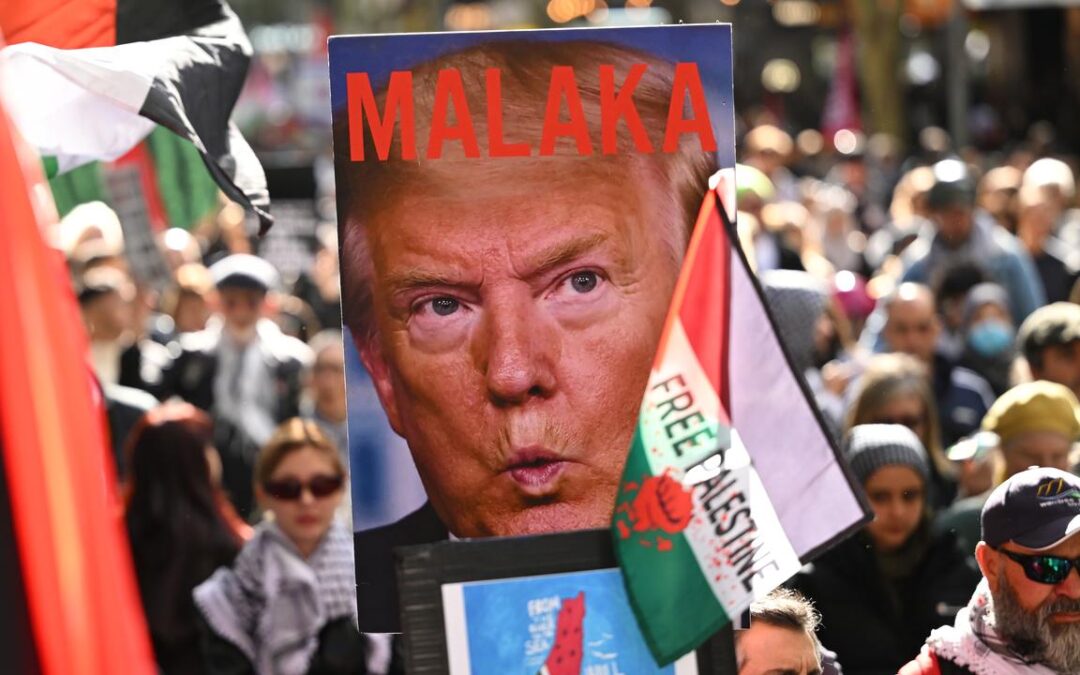
Australia risks US ire with Palestine recognition move
A decision to announce Palestinian recognition after its allies might have allowed Australia to escape backlash from the US.
Prime Minister Anthony Albanese revealed Australia will join the UK, Canada and France in recognising Palestinian statehood at a United Nations General Assembly meeting in September, after mounting pressure to alleviate civilian suffering in Gaza.
The US has long been one of Australia’s most important allies, but for decades it has remained staunchly opposed to the recognition of Palestine.
While some have argued Australia’s decision to break from the US could imperil the bilateral relationship, Flinders University international relations lecturer Jessica Genauer says the federal government’s diplomatic calculus has helped dampen any impact.
“Because Australia waited until other important countries all said they’re planning to recognise Palestine … I don’t think it will be singled out by the US,” Dr Genauer told AAP.
“The Trump administration is opposed to countries recognising Palestine, but I think that they would put Australia in with a whole group of other countries and it wouldn’t particularly be detrimental to Australia’s relationship.”
Since US President Donald Trump began his second term, the Labor government has intentionally opted not to align too closely with his policy directions.
Instead, Australia has worked closely with European nations and other partners to ensure it is part of a strong network of middle powers.
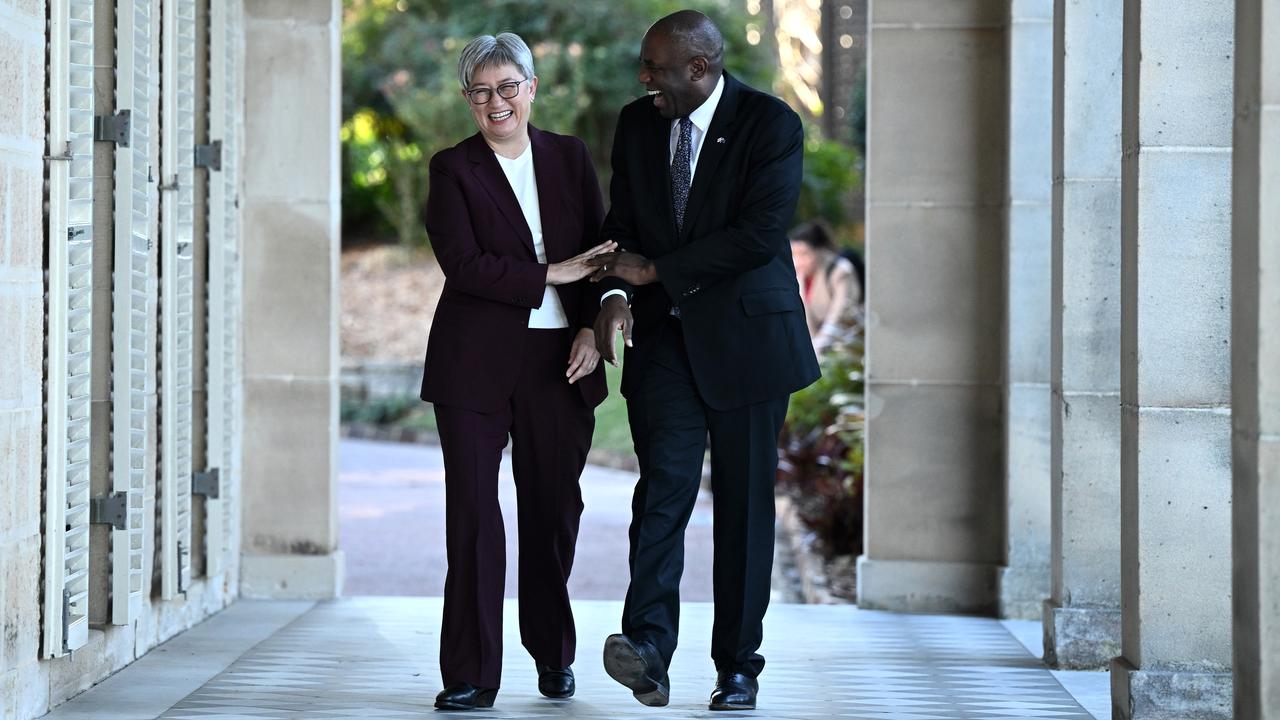
This approach has been used to navigate a response to Russia’s invasion of Ukraine, and now with Palestinian recognition, Dr Genauer said.
Opposition Leader Sussan Ley said Australia’s announcement on statehood was “disrespectful” of its relationship with the US and could jeopardise peace as any ceasefire would be brokered by America.
But the prime minister defended his decision.
“President Trump has made it very clear he wants to see peace in the region. Australia wants to see peace in the region,” he said.
“We make our sovereign decisions as a nation state in Australia’s national interest and we are aligning ourselves with like-minded countries.”
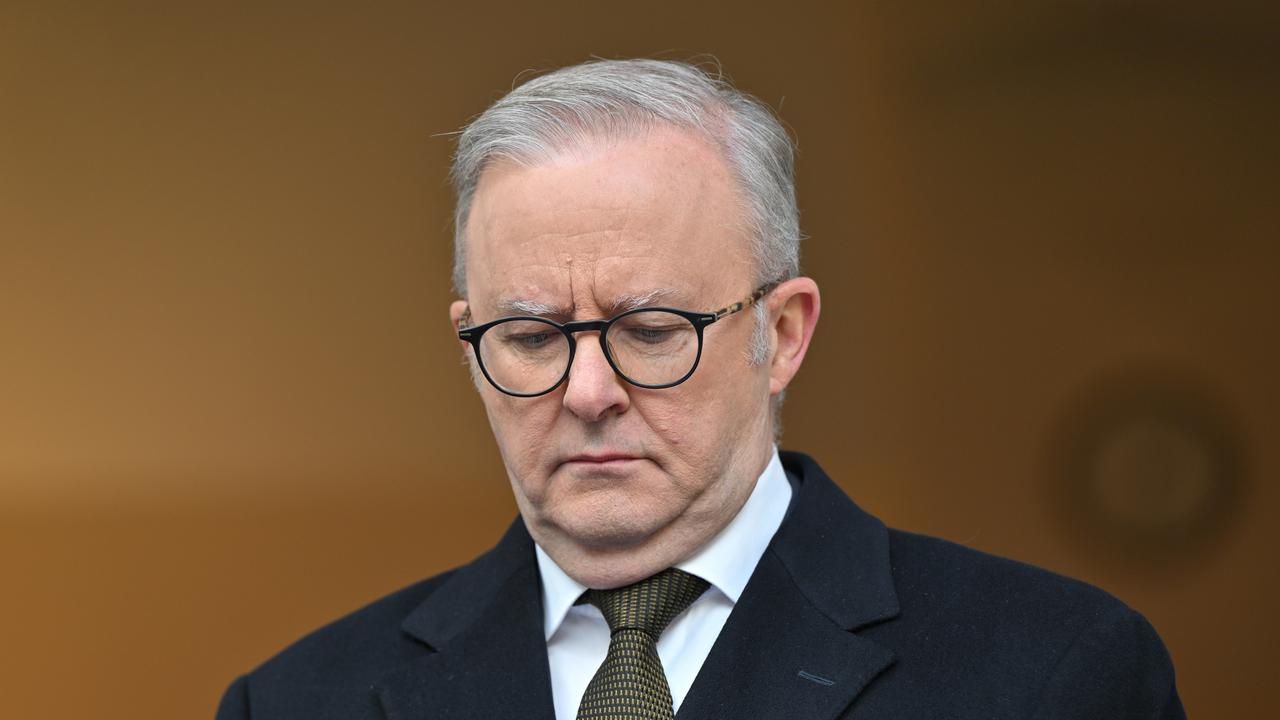
While recognising Palestine would not immediately change anything for the two million people in Gaza the UN projects are facing severe food insecurity, Dr Genauer said the move was important because it showed countries were looking for any possible way to shift the situation.
More than 140 out of the 193 United Nations member states already recognise Palestine, but the addition of Australia – a strong middle power – alongside the UK and France, which have veto power in the UN Security Council, will add significant pressure.
“The United States is now quite isolated in their position blocking that recognition,” she said.
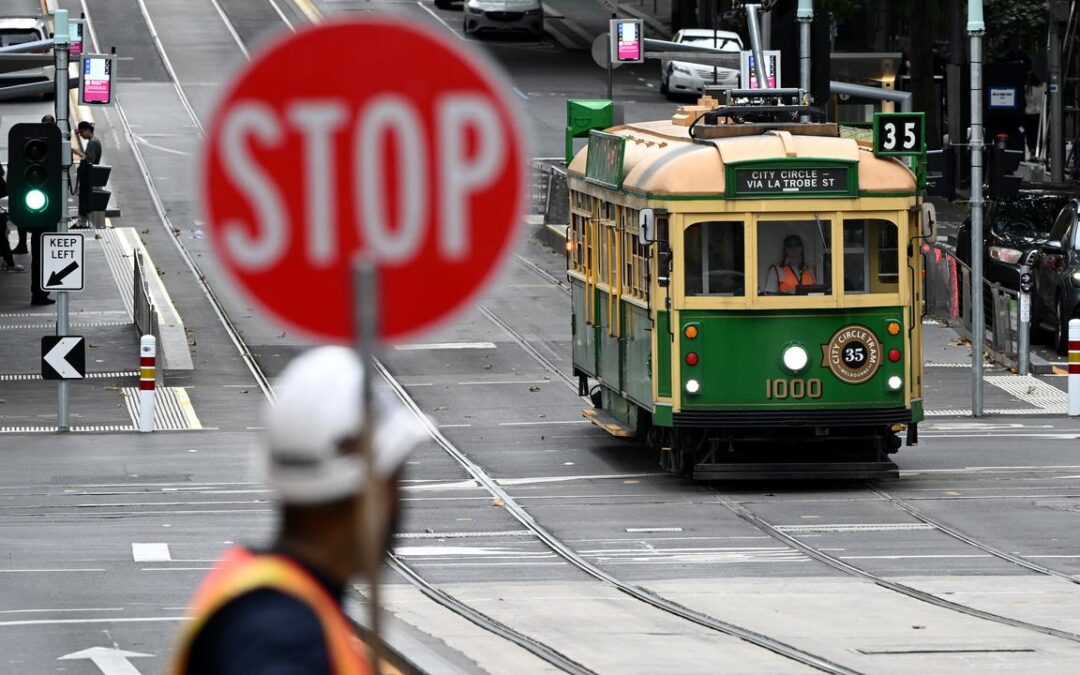
How low can they go? Growth and jobs to rule rates call
With a highly-anticipated Reserve Bank interest rate cut in the bag, the prospect of more mortgage relief in September is looking less secure.
After the central bank cut the cash rate by a quarter percentage to 3.6 per cent on Tuesday, Governor Michele Bullock raised hopes of more rate reductions to come.
While she wouldn’t specifically state where the cash rate would end up when all is said and done, Ms Bullock indicated more cuts would be consistent with the RBA meeting its targets of low inflation and full employment.
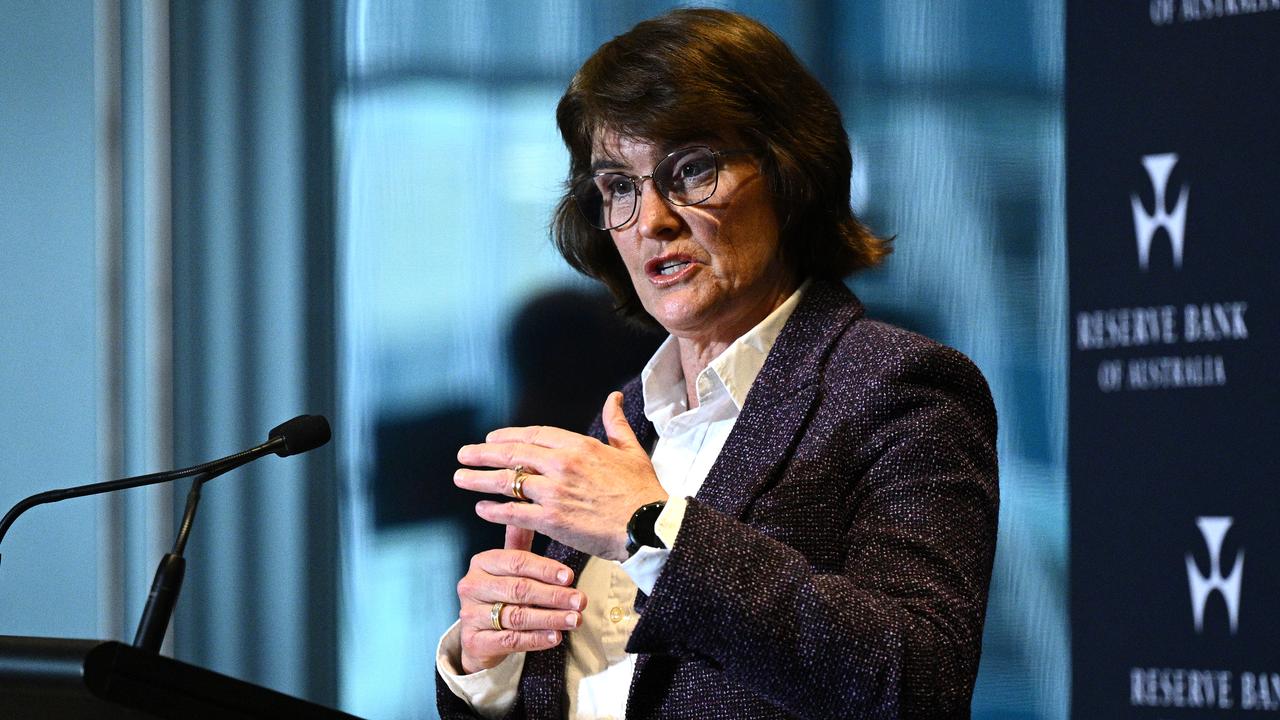
The bank’s quarterly economic forecasts, also released on Tuesday, assumed two more cuts, based on market pricing.
“You’ll note that in the forecasts, we have inflation coming back down to target and the unemployment rate remaining where it is with a couple more cash rate cuts in there,” Ms Bullock said.
“That’s the best sort of guess, but things can change.”
Money markets continued to price in two more cuts by early 2026, following the decision.
But traders were less hopeful that the RBA would deliver another cut at its next meeting in September, pricing in about a one-third chance.
Ms Bullock said the board would take things “meeting-by-meeting”, keeping a close eye on upcoming data releases to ensure the economy continues to progress in line with the RBA’s aims.
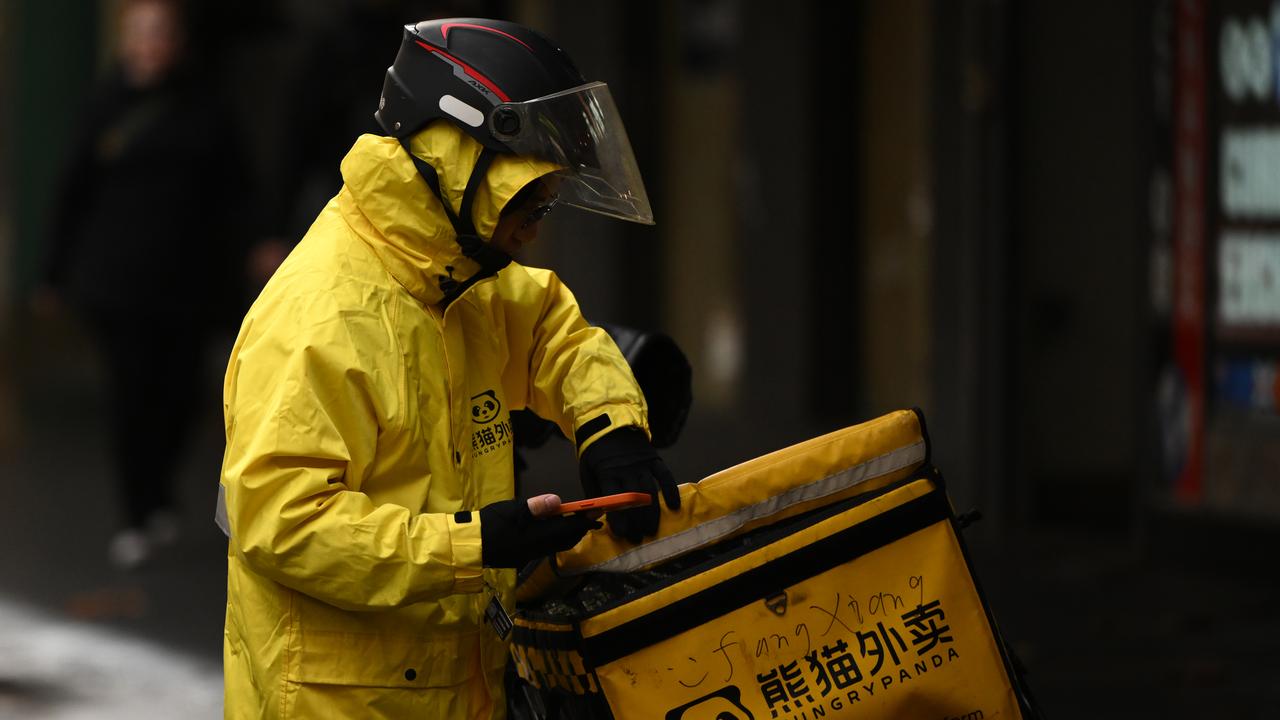
CBA senior economist Belinda Allen expects the RBA to wait until November before cutting again, but that could shift depending on how the data unfolds.
“The governor did not rule out back‑to‑back cuts. Inflation appears under control, so any acceleration of the cutting cycle we expect would have to be driven by a deterioration in the labour market,” she said.
Ms Allen said the most important data readings before the next meeting would be labour force surveys released on Thursday and in September, as well as economic growth figures for the June quarter to be released on September 3.
RBA staff lowered their GDP growth forecasts as they pared back their expectations for trend productivity growth from one per cent to 0.7 per cent per year.
Australia’s economy is now expected to expand by 1.7 per cent – down from 2.1 per cent – in 2025.
While the uncertainty caused by Donald Trump’s trade war had eased, there remained risks to growth.
“Recent international developments have so far had little discernible impact on the Australian economy,” the RBA’s Statement on Monetary Policy said.
But given the typical lag, any discernible effects were only expected to start showing up in the second half of 2025 or 2026.
While labour force figures are key to the RBA’s assessment of the tightness of the jobs market, the bank will keep an eye on wage growth data on Wednesday to confirm low unemployment isn’t contributing to an unsustainable rise in wages.
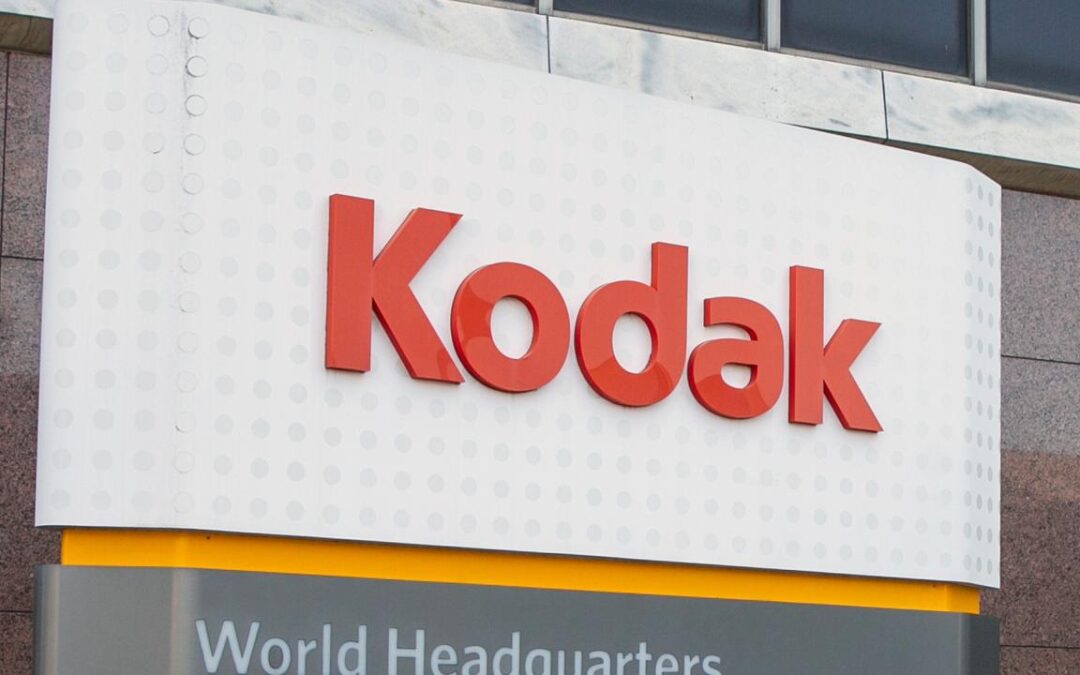
Kodak says ‘substantial doubt’ it can stay in business
The more than 130-year-old Eastman Kodak Co says there is “substantial doubt” about its ability to stay in business, saying it may have difficulty meeting upcoming debt obligations.
Shares of the photography company slid more than 13 per cent in early trading on Tuesday in the United States.
“Kodak has debt coming due within 12 months and does not have committed financing or available liquidity to meet such debt obligations if they were to become due in accordance with their current terms,” the company wrote in a regulatory filing.
“These conditions raise substantial doubt about Kodak’s ability to continue as a going concern.”
The Rochester, New York-based company said that it had $US155 million ($A239 million) of cash and cash equivalents as of June 30, with $US70 million held within the US.
Last year Kodak said that it would end its retirement income plan in order to pay down debt, according to The Wall Street Journal.
Kodak Chief Financial Officer David Bullwinkle said in a statement on Monday that the company expects to know by Friday how it will satisfy its obligations to pay all pension plan participants and foresees completing the reversion by December.
Founded by George Eastman in 1880, Eastman Kodak Co is credited with popularising photography at the start of the 20th century and was known all over the world for its Brownie and Instamatic cameras and its yellow-and-red film boxes.
It was first brought down by Japanese competition and then an inability to keep pace with the shift from film to digital technology.
Kodak filed for bankruptcy protection in 2012 after struggling with increasing competition, continuing growth in digital photography and growing debt.
The company wound up selling off many of its businesses and patents while shutting down the camera manufacturing unit that first made it famous.
It received approval for its plan to emerge from court oversight a year later.
At the time, Kodak was looking to recreate itself as a new, much smaller company focused on commercial and packaging printing.
Kodak is now nearing completion on a manufacturing plant to create regulated pharmaceutical products.
The company already makes unregulated key starting materials for pharmaceuticals.
Production at the retrofitted facility is expected to start later this year.
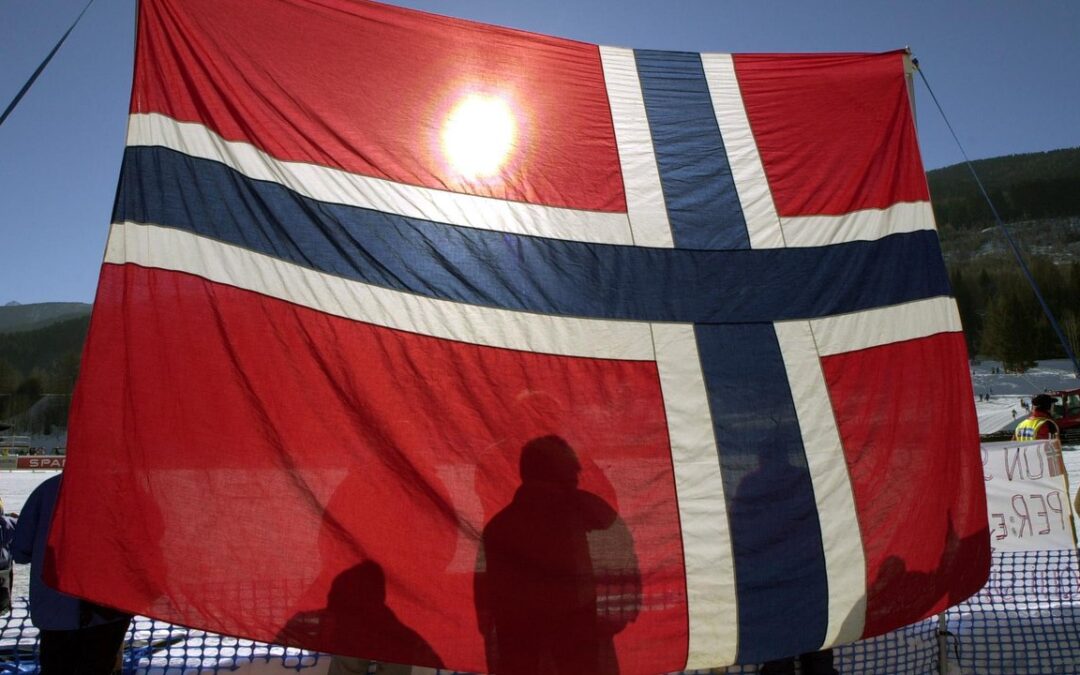
Norwegian fund expects to sell more Israeli stocks
Norway’s $US2 trillion ($A3.1 trillion) sovereign wealth fund expects to divest from more Israeli companies as part of its ongoing review of investments in the country over the situation in Gaza and the West Bank.
The world’s largest sovereign wealth fund announced on Monday it was terminating contracts with external asset managers handling some of its Israeli investments and has divested parts of its portfolio in the country over the worsening humanitarian crisis in Gaza.
The review began last week following media reports that the fund had built a stake of just more than two per cent in an Israeli jet engine group that provides services to Israel’s armed forces, including the maintenance of fighter jets.
The stake in the company, Bet Shemesh Engines Ltd (BSEL), had now been sold, the fund announced on Tuesday.
Bet Shemesh did not respond to requests for comment.
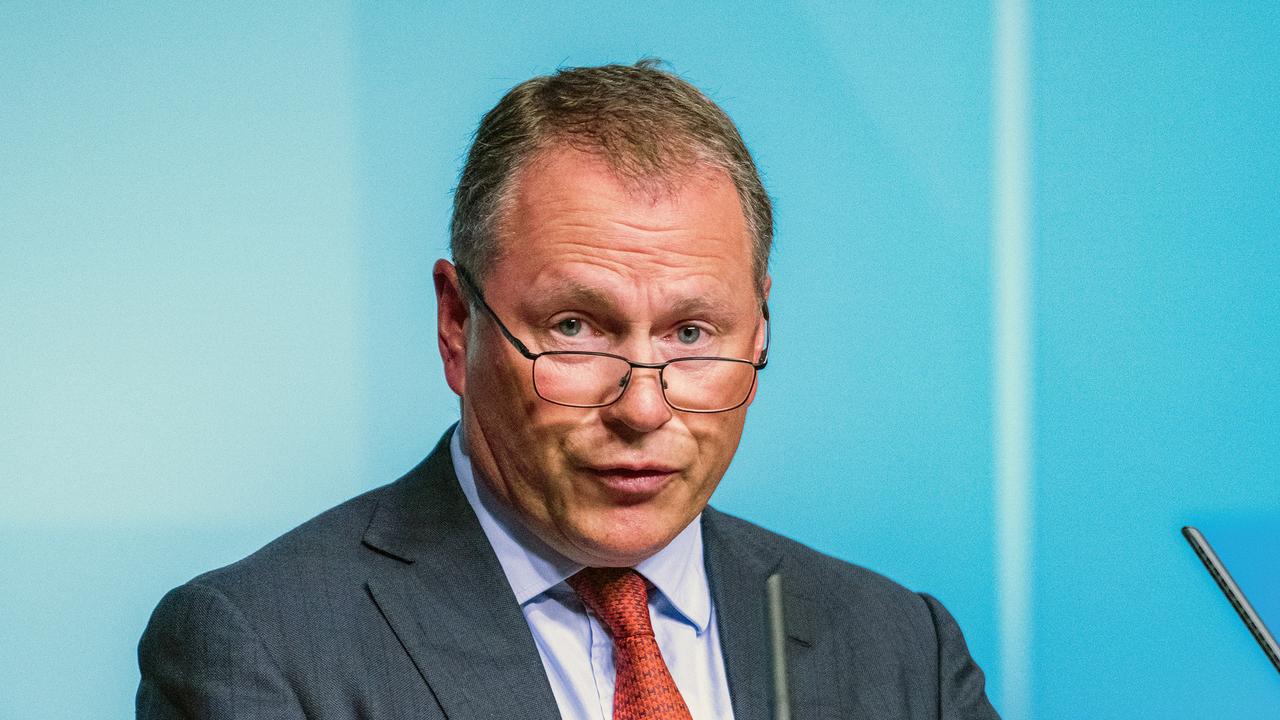
Norges Bank Investment Management (NBIM), an arm of Norway’s central bank, which held stakes in 61 Israeli companies as of June 30, in recent days divested stakes in 11 firms, including BSEL.
It did not name the other companies.
“We expect to divest from more companies,” NBIM CEO Nicolai Tangen told a news conference on Tuesday.
The fund began investing in BSEL in November 2023, about one month after the war in Gaza began, via an external investment manager, Tangen said.
The fund declined to name the external portfolio manager.
Since then, NBIM has held quarterly meetings with Bet Shemesh Holdings, but the war in Gaza was not raised as a theme.
“We had discussions about their business in the United States, not about the war in Gaza,” Tangen said, adding that the fund had rated BSEL as a “medium risk” stock with regards to ethics concerns.
BSEL was later reviewed as a high-risk stock in May.
That change should have been quicker, Tangen said, adding that NBIM should have had a tighter overview of these investments earlier.
“We should have been quicker in taking back control of the Israeli investments,” he said.
The fund, which invests the Norwegian state’s revenues from oil and gas production, is one of the world’s largest investors, owning on average 1.5 per cent of all listed stocks worldwide.
It also invests in bonds, real estate and renewable energy projects.
On Tuesday, it posted a 698 billion Norwegian crowns ($A104.9 billion) profit for the first half of the year, earning an overall return of 5.7 per cent in line with its benchmark index.
“The result is driven by good returns in the stock market, particularly in the financial sector,” Tangen said in a statement.
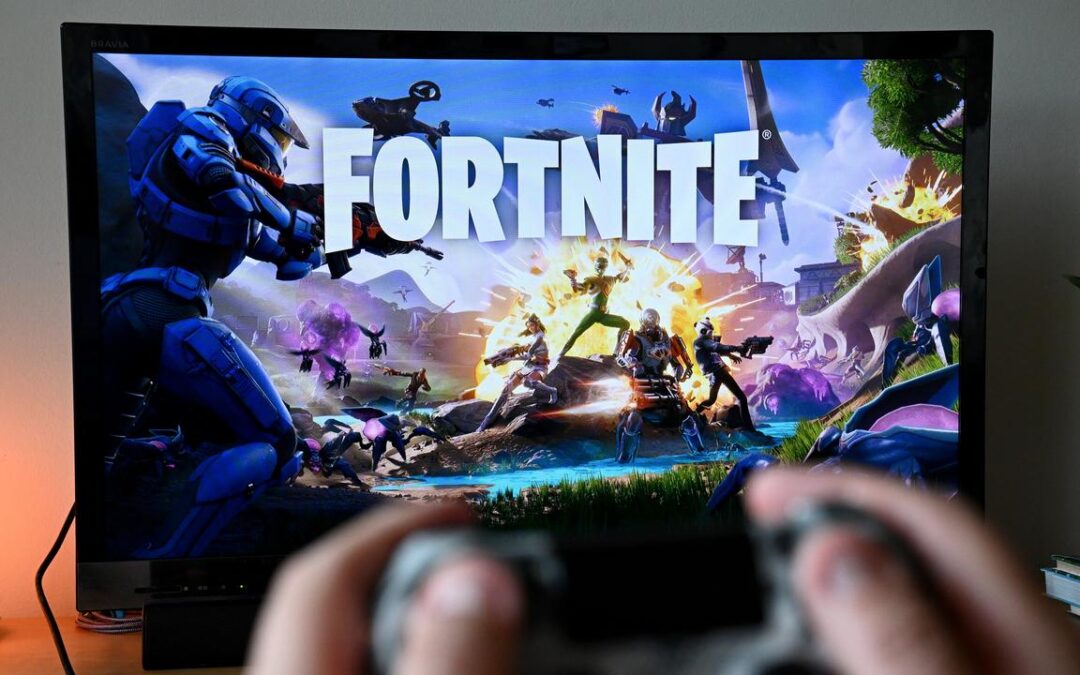
Huge payout tipped after Apple and Google’s Epic loss
Tech giants Apple and Google have been found to have engaged in anti-competitive conduct, paving the way for a payout that could be worth hundreds of millions of dollars.
Epic Games, the developer of popular online game Fortnite, sued the two tech giants in the Federal Court, claiming they engaged in anti-competitive and unconscionable conduct against those developing apps distributed through iOS and Android devices.
The lawsuit was launched after Epic was booted from Apple’s App Store and Google’s Play Store after attempting to introduce its own payment system into Fortnite games in August 2020.
Justice Jonathan Beach on Tuesday found Apple and Google had breached Australia’s competition laws, upholding key elements of Epic’s case.
Apple had a “substantial degree of market power” because of the restrictions placed on in-app payment systems and the distribution of iOS compatible apps, he said.
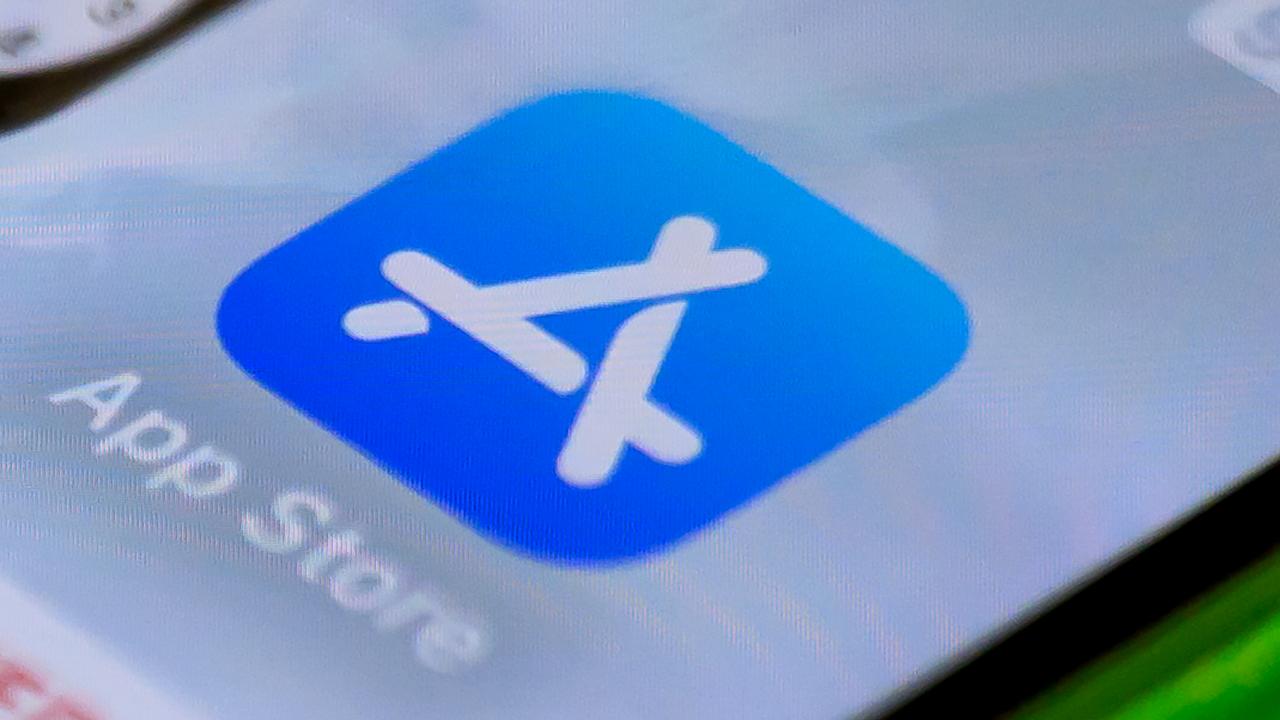
Google also had a significant degree of market power and was the predominant supplier of Android apps, the court was told.
The tech companies’ dominance had the effect of substantially lessening competition and breached Australia’s competition laws, Justice Beach found.
However, he rejected Epic’s argument Apple had engaged in unconscionable conduct.
Justice Beach also found in favour of a class action lawsuit comprising Australian developers and gamers who claimed Apple and Google’s monopolistic practices led to inflated prices.
The app developers had to pay higher commissions than they otherwise would have if there was more competition in the market
Lawyers for the plaintiffs welcomed the result as a significant win for consumer rights and digital fairness that could have global implications for how digital platforms operate.
“This judgment is a turning point,” said Kimi Nishimura from Maurice Blackburn Lawyers.
“It sends a clear message that even the most powerful corporations must play by the rules and respect the rights of consumers and developers alike.”
The lawyers said the decision could result in “one of the largest class action payouts in Australian legal history with potential compensation of several hundreds of millions of dollars to come from two global corporate Goliaths”.
The parties have been given time to consider the 2000-page judgment and will return to the Federal Court at a later date to determine compensation and directives aimed at increasing transparency.
A Google spokesperson said the company disagreed with the court’s characterisation of its billing policies and practices and would review the full decision.
Apple welcomed the “rejection of some of Epic’s claims, however, we strongly disagree with the court’s ruling on others.”
Epic Games took to social media to herald the result and say Fortnite would return to iOS soon.
“A federal judge just found that Apple and Google both engaged in anti-competitive conduct,” the company wrote.
“Another HUGE Win for Epic Games!”
Epic won a separate US case against Google in 2023 after a jury found it had engaged in anti-trust conduct through the Google Play Store.
It was less successful in its case against Apple, although the court found the tech giant had engaged in anti-competitive conduct.
Apple has also been forced to implement changes to its App Store in Europe, including allowing third-party payment systems.
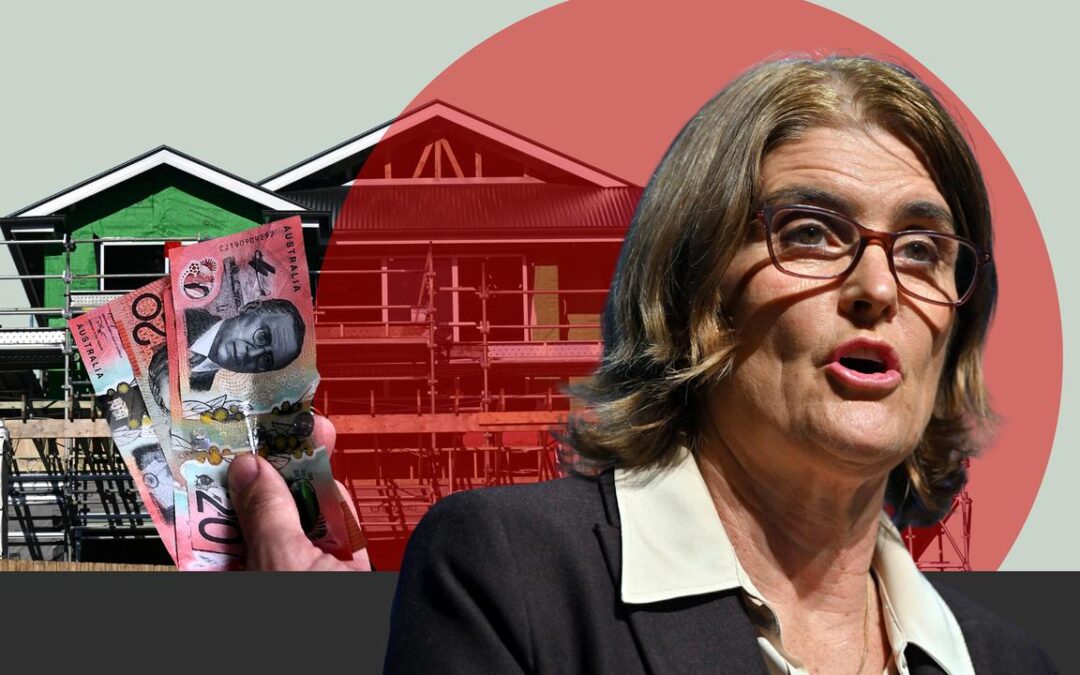
Rates cut but borrowers told not to bank on more relief
Borrowers have received welcome relief from the Reserve Bank of Australia, which delivered a widely expected interest rate cut but flagged the end to its easing cycle is getting closer.
The central bank opted not to shock markets for a second time in two months on Tuesday, cutting the cash rate by 25 basis points to 3.6 per cent.
In its accompanying statement, the RBA board said a further easing in monetary policy, following cuts in February and May, was appropriate because underlying inflation and the labour market had continued to ease.
“The board nevertheless remains cautious about the outlook, particularly given the heightened level of uncertainty about both aggregate demand and potential supply,” it said.
Absent from the board’s statement this time was a comment it felt monetary policy was still restrictive.
As the cash rate gets closer to the unobservable “neutral” rate, the board would have to work harder to justify crossing into stimulatory territory, EY chief economist Cherelle Murphy said.
“This will be a harder barrier for the Reserve Bank to cross but we think a likely one, with private consumption and investment still soft and risks persisting due to elevated global uncertainties,” she said.
RBA governor Michele Bullock said any further decisions would be taken “meeting-by-meeting” and based on economic data as it unfolds.
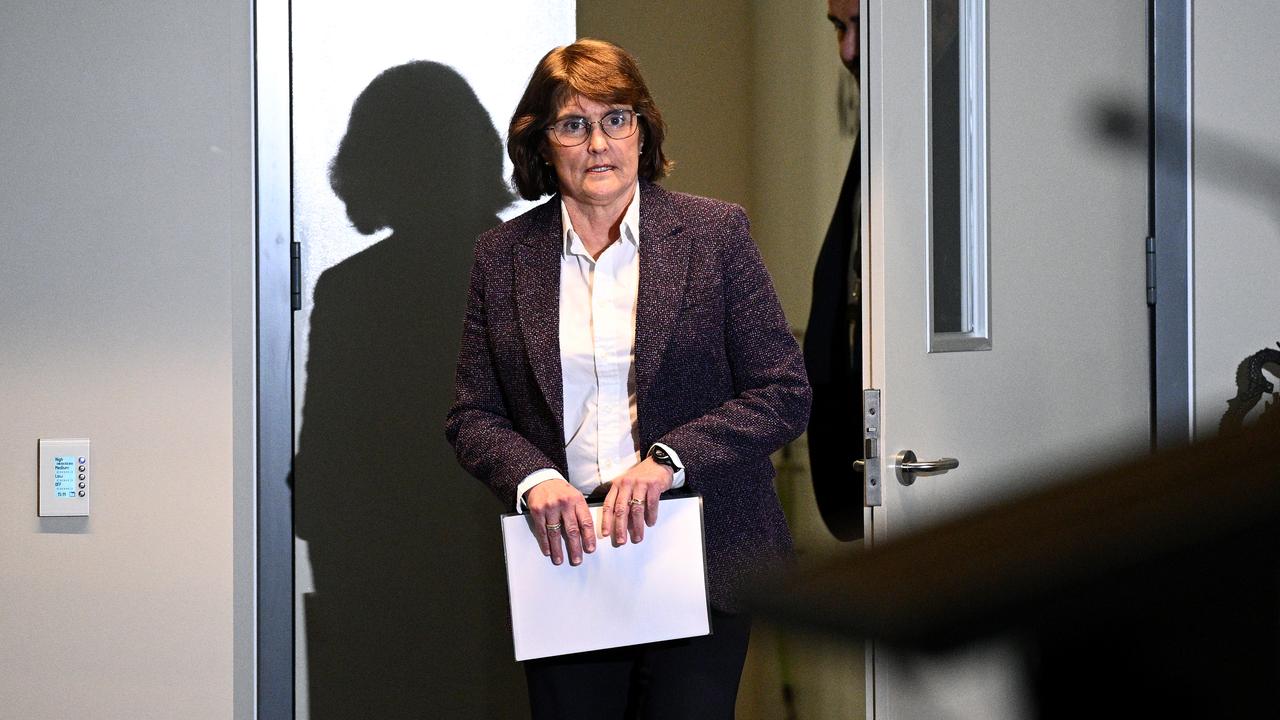
All nine board members voted in favour of a cut and there was no discussion of a jumbo 50 basis point cut, Ms Bullock said.
The RBA’s decision will save borrowers with a $600,000 mortgage almost $90 a month in repayments and a cumulative $272 per month since cuts began in February.
The move brings the cash rate to its lowest level since May 2023, with the average variable mortgage rate expected to fall to 5.5 per cent.
But for many borrowers, the financial boost was behind schedule.
Most economists had expected the RBA to deliver further rate relief in its July meeting.
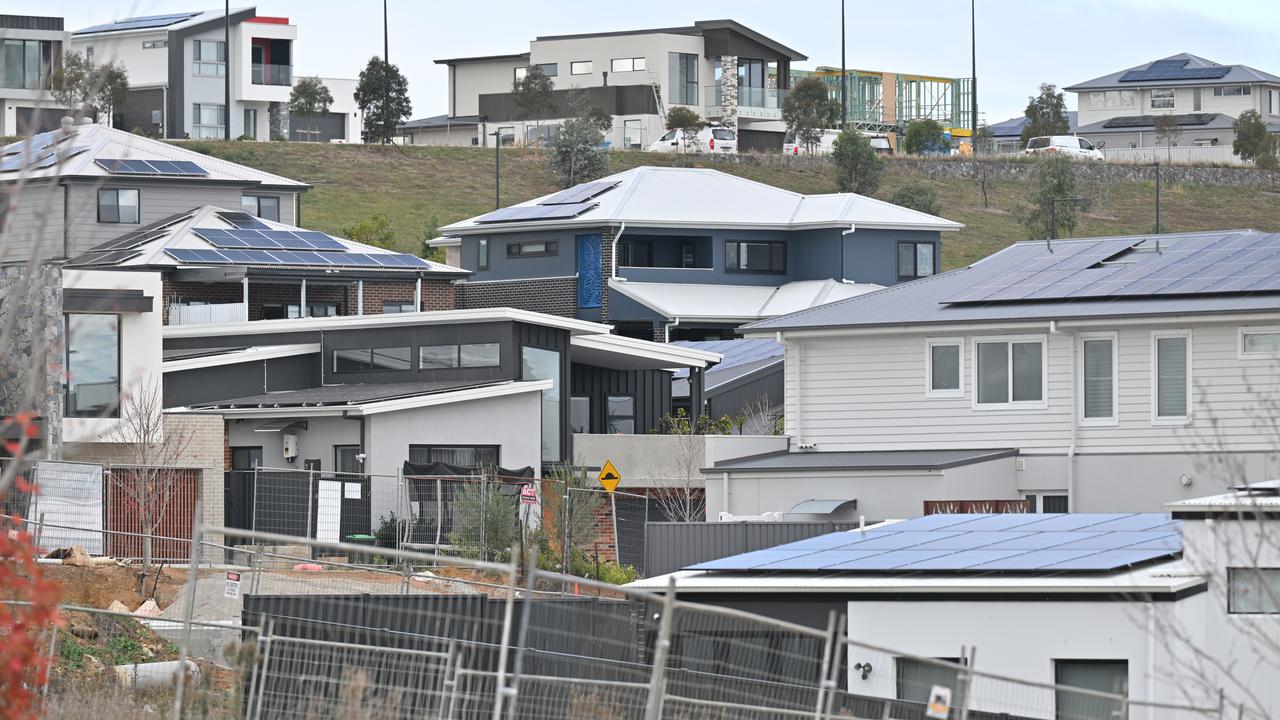
In a shock 6-3 decision, the board kept rates on hold, citing a need to wait for more inflation data to ensure price growth was coming down sustainably to target.
The local share market lifted modestly and the Aussie dollar fell following the decision, while money markets were pricing in two more cuts by March.
Vanguard senior economist Grant Feng predicted one more cut by the end of 2025, as growth showed signs of recovery and the unemployment rate stabilising.
Treasurer Jim Chalmers said the decision was “very welcome relief for millions of Australians”.
“The three interest rate cuts we’ve seen this year would not have been possible without our collective efforts to get inflation down,” he said.
The RBA board in its statement noted uncertainty in the global economy was still high.
But markets had settled down in recent months with a little bit more clarity to the scale of Donald Trump’s tariffs and a fairly low amount of retaliation from other countries.
In quarterly forecasts produced by RBA staff and released alongside the cash rate decision, productivity growth was revised down by 0.3 per cent over the medium term.
That would flow through to lower GDP growth, lower living standards and make it harder to get inflation under control.
All four big banks and challenger lender Macquarie announced they would pass on the cut in full to variable home loan borrowers.
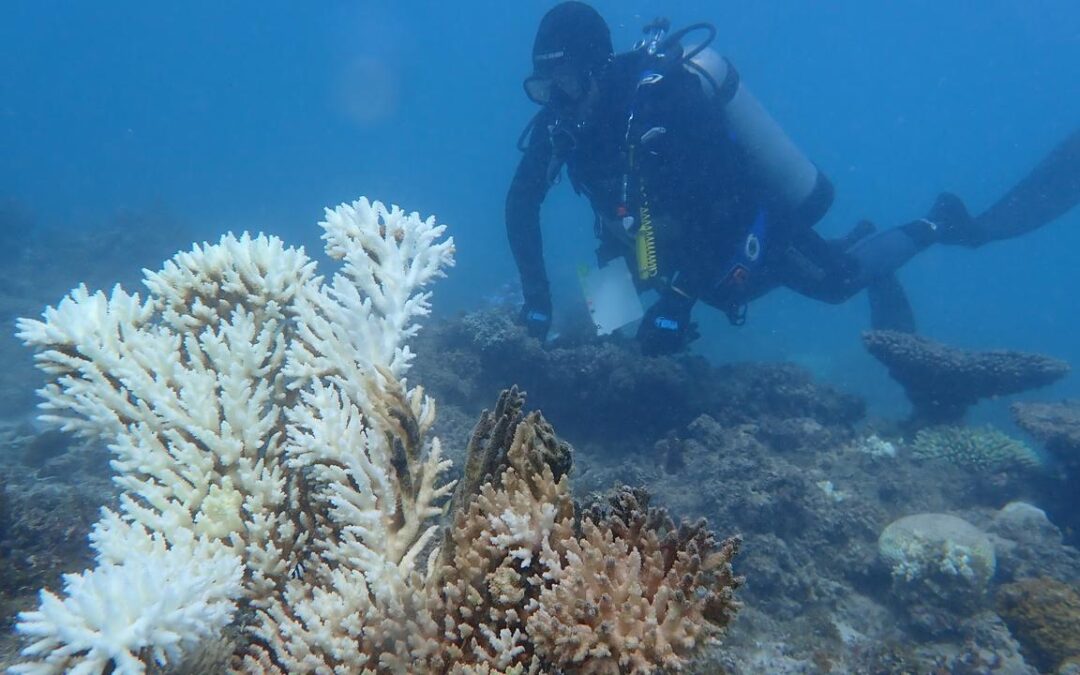
Untouched reefs cop record bleaching in intense heat
The longest, largest and most intense marine heatwave on record has triggered the worst coral bleaching off Australia’s western coastline, scientists say.
Researchers are still assessing the full extent of the damage after an unprecedented event that has prompted further calls for urgent action on climate change.
The Australian Institute of Marine Science has confirmed coral mortality rates of up to 90 per cent along 1500km of Western Australia’s coastline.
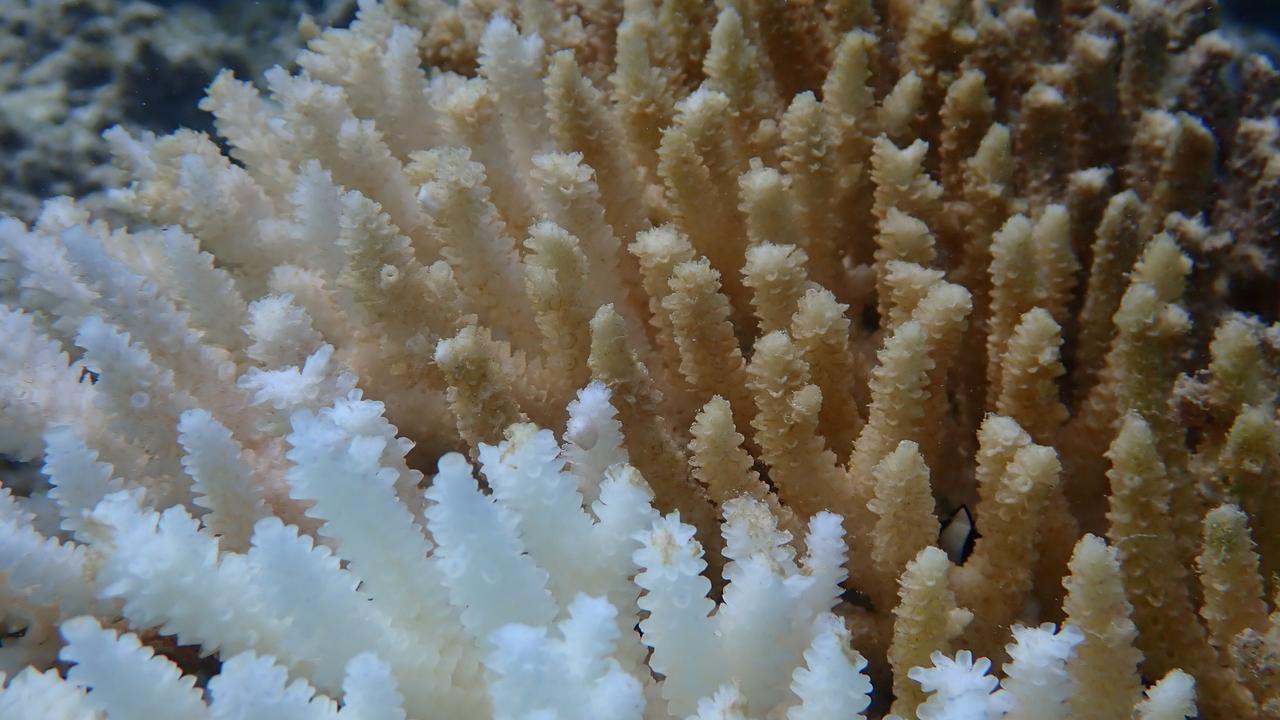
“The length and intensity of the heat stress and its footprint across multiple regions is something we’ve never seen before on most of the reefs in WA,” the institute’s senior research scientist James Gilmour said.
“Areas which had given us hope because they’d rarely or not bleached before, like the Rowley Shoals, north Kimberley and Ningaloo, have been hit hard this time.”
Sea surface temperatures around Australia in the past summer were the warmest since 1900, with the institute labelling it the “longest, largest and most intense” season on record for WA.
Conditions varied across the tropical reefs – from “extreme”, 90 per cent bleached or dead, to “medium”, somewhere between 11 and 30 per cent.
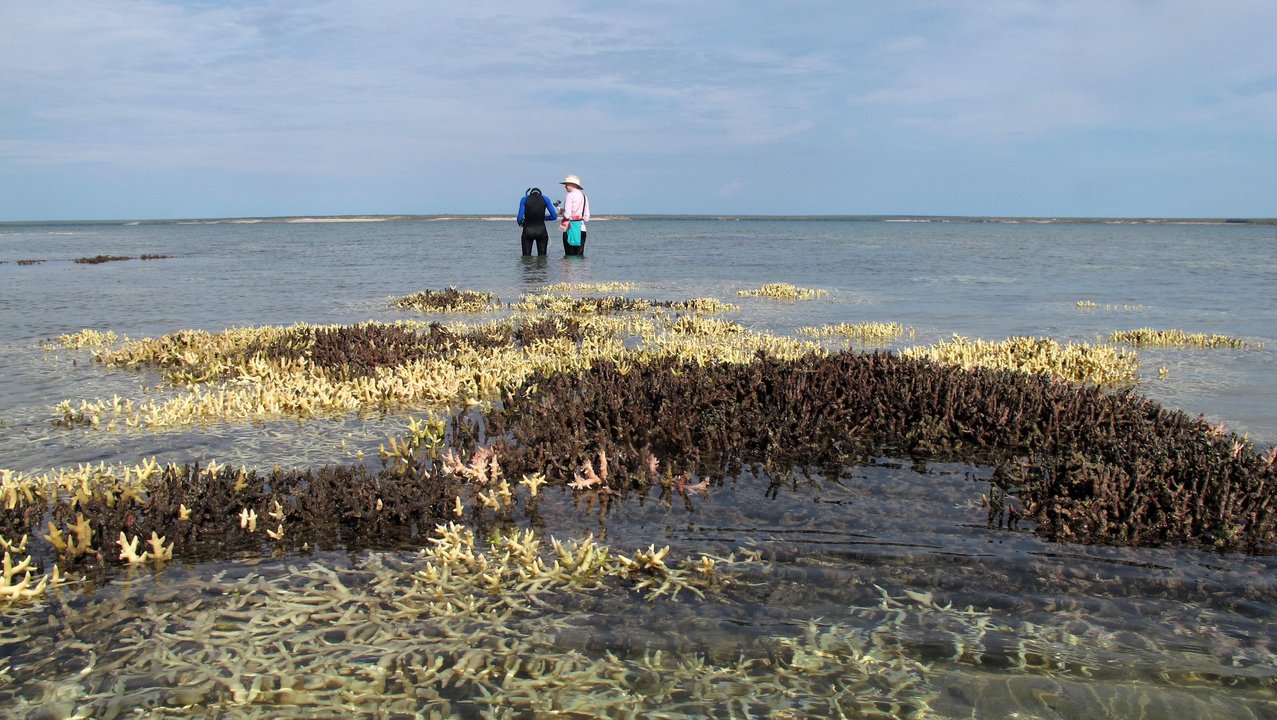
Mermaid and Clerke reefs in the Rowley Shoals, 300km west of Broome, recorded “very high” mortality levels between 61 and 90 per cent.
The World Heritage-listed Ningaloo Reef, known for its whale sharks, experienced “high” bleaching and mortality between 31 and 60 per cent.
Dr Gilmour said climate change was driving the increased frequency and severity of mass coral bleaching events and giving them little time to bounce back in between.
“They need 10 to 15 years to recover fully,” he said.
“The key to helping coral reefs survive under climate change is to reduce greenhouse gas emissions.”
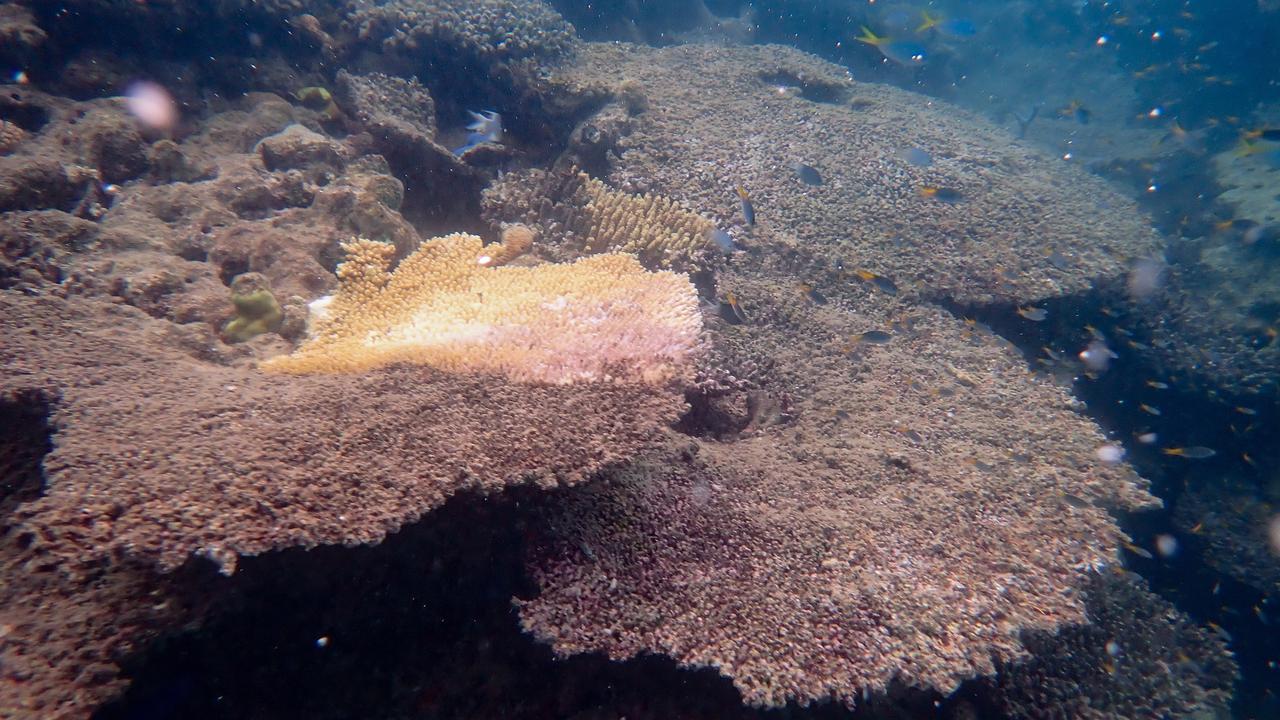
The Great Barrier Reef has also been under pressure, experiencing the largest-ever annual decline in coral cover in two of its three regions in 2024.
Greens leader Larissa Waters said the WA event was a further warning about the impacts of climate change and accused the federal government of not taking the crisis seriously.
“Reefs that have never suffered bleaching before have now bleached – this is the face of the climate crisis,” she said.
“We’re not going to get too many more warnings, because we’ve seen mass coral bleaching and deaths, and you can’t come back from that.”
The Australian Marine Conservation Society called for urgent climate action and stronger protection for reefs.
“The vast scale of the impacts along WA’s coastline and offshore reefs is hard to comprehend – this is unprecedented harm and needs an unprecedented leadership response from WA and federal governments,” chief executive Paul Gamblin said.
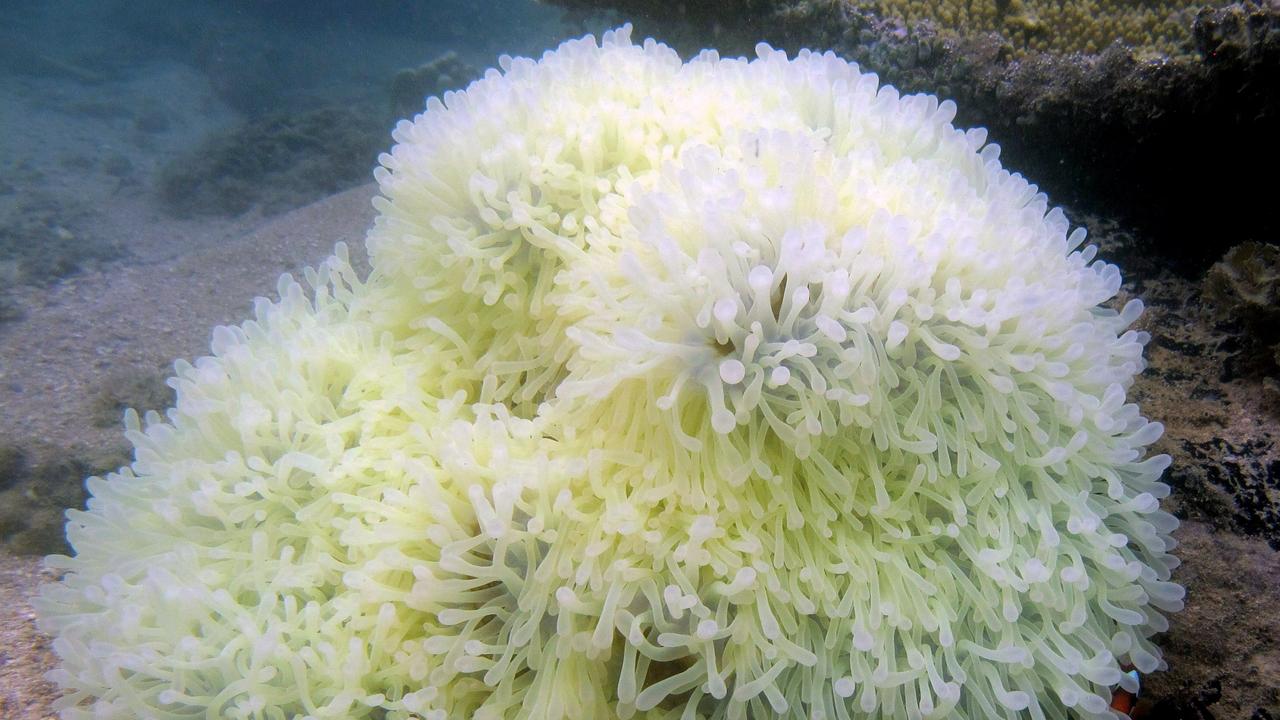
The Conservation Council of WA said the bleaching was devastating but not surprising.
“Scientists have been telling us for many years now that at 1.5 degrees of warming we’re set to lose 80-90 per cent of our coral reefs and at two degrees we lose it all,” director Matt Roberts said.
Molecular ecologist Kate Quigley said the bleaching and coral deaths should be a “wake-up call” for the nation.
“We need strong emissions reductions to curb future marine heatwaves that we know are likely to be in our future,” the Minderoo Foundation principal research scientist said.
Dr Quigley also called for more research and monitoring of the “critical ecosystems”.
The coral health update comes ahead of the expected release of the federal government’s 2035 climate goals, due in September under Paris Agreement rules.
WA remains the only state without a 2030 emissions reduction target.